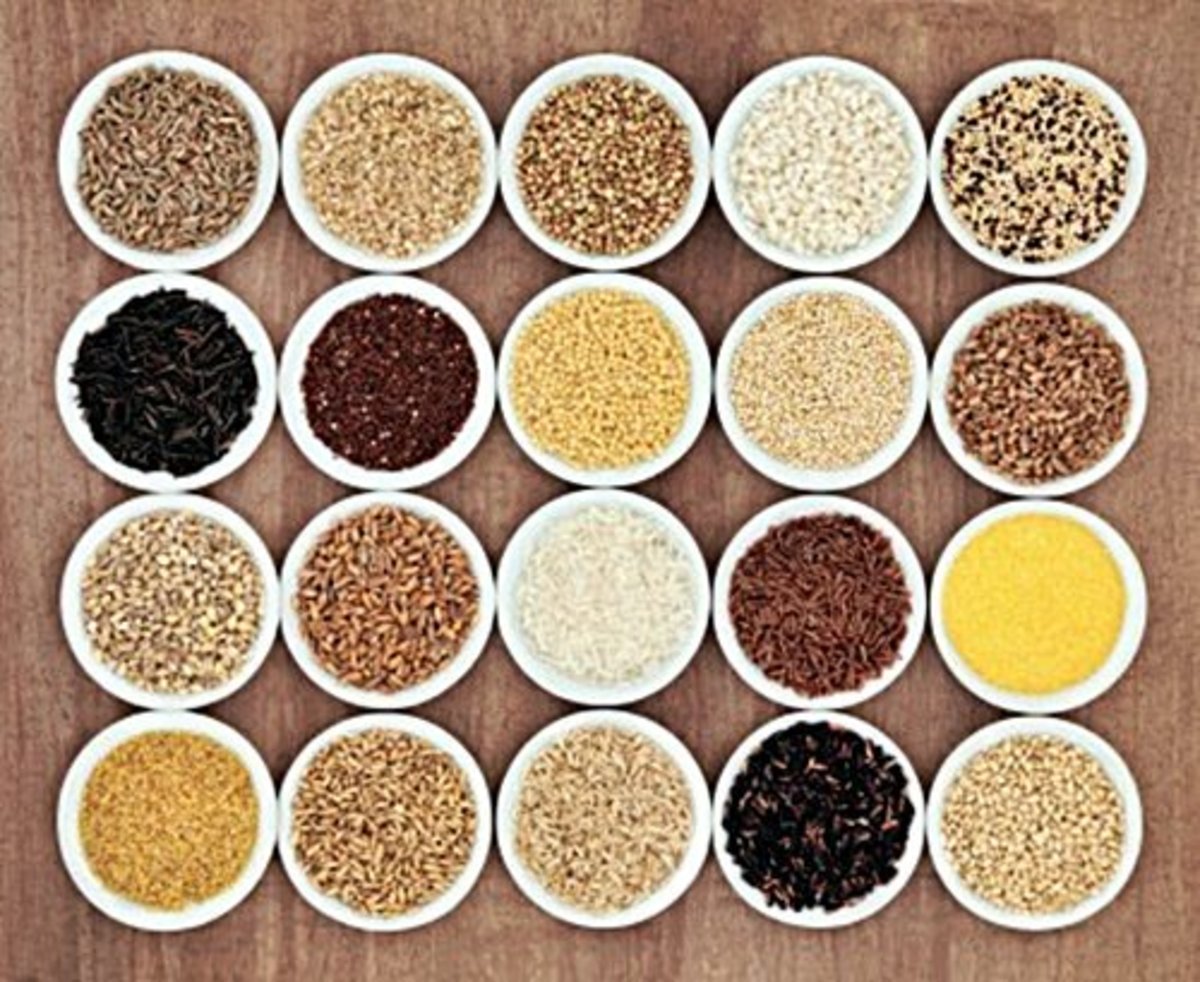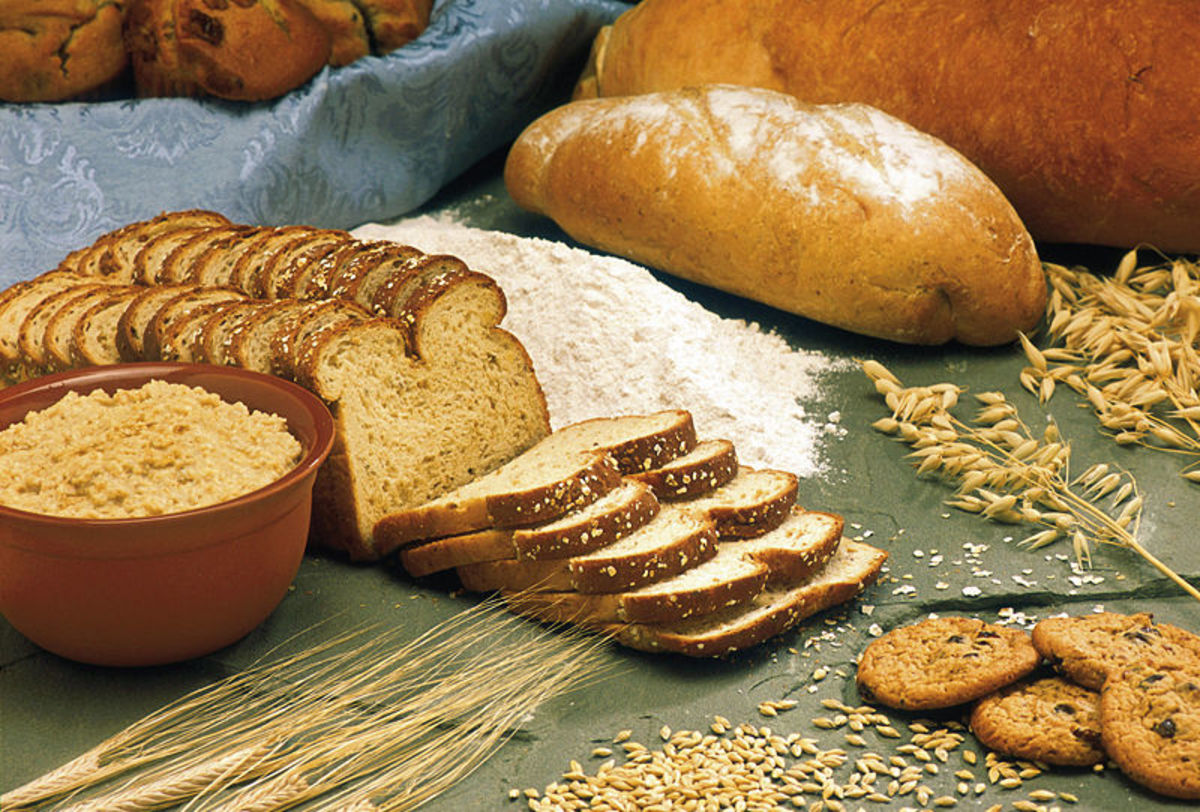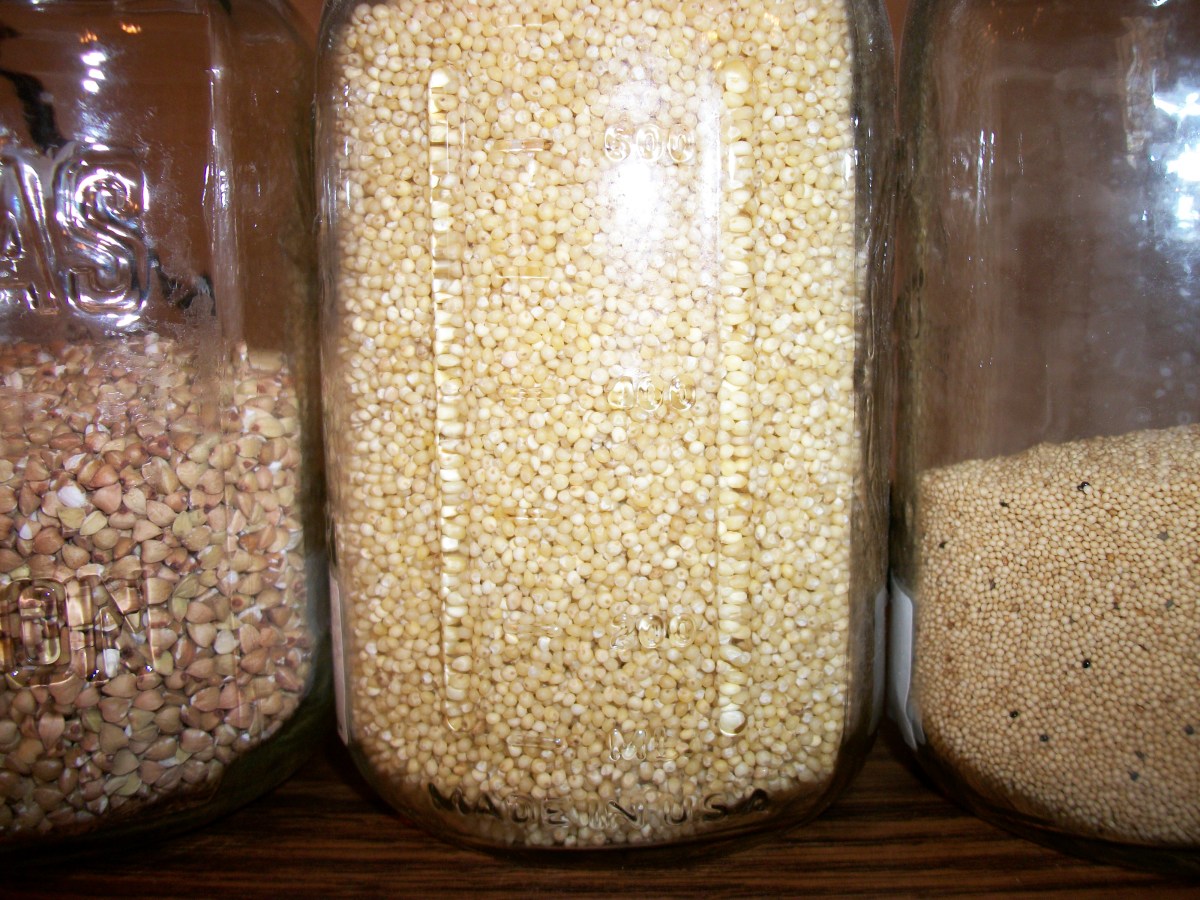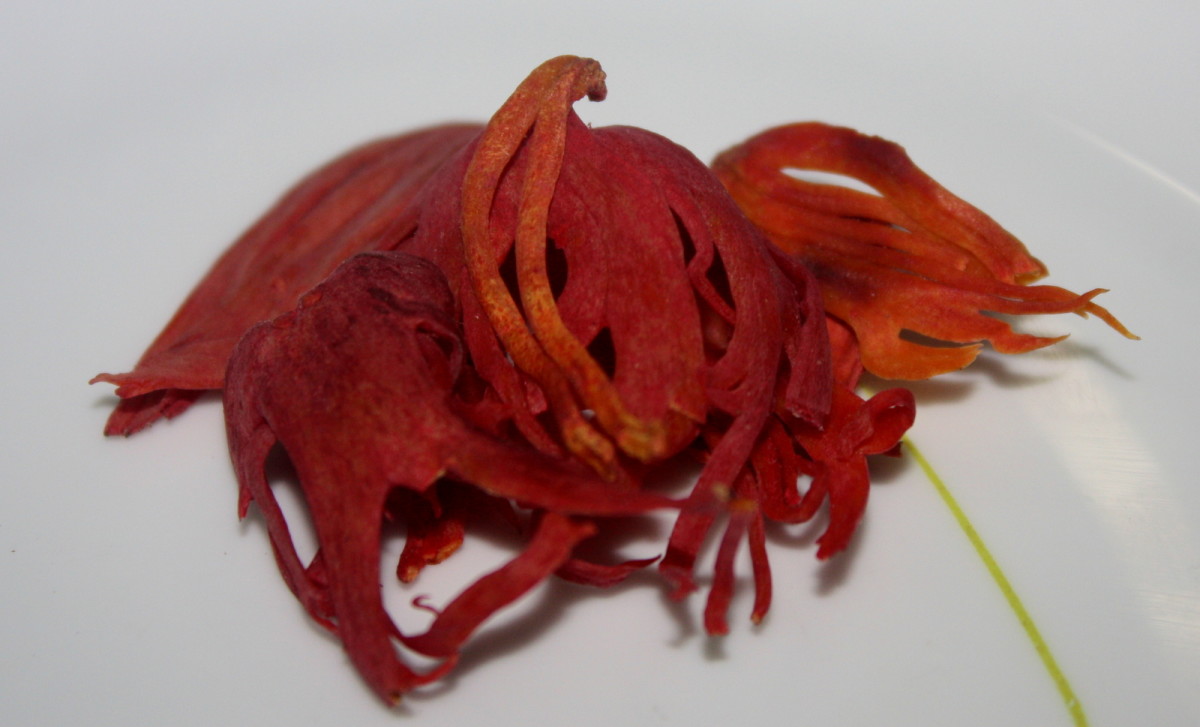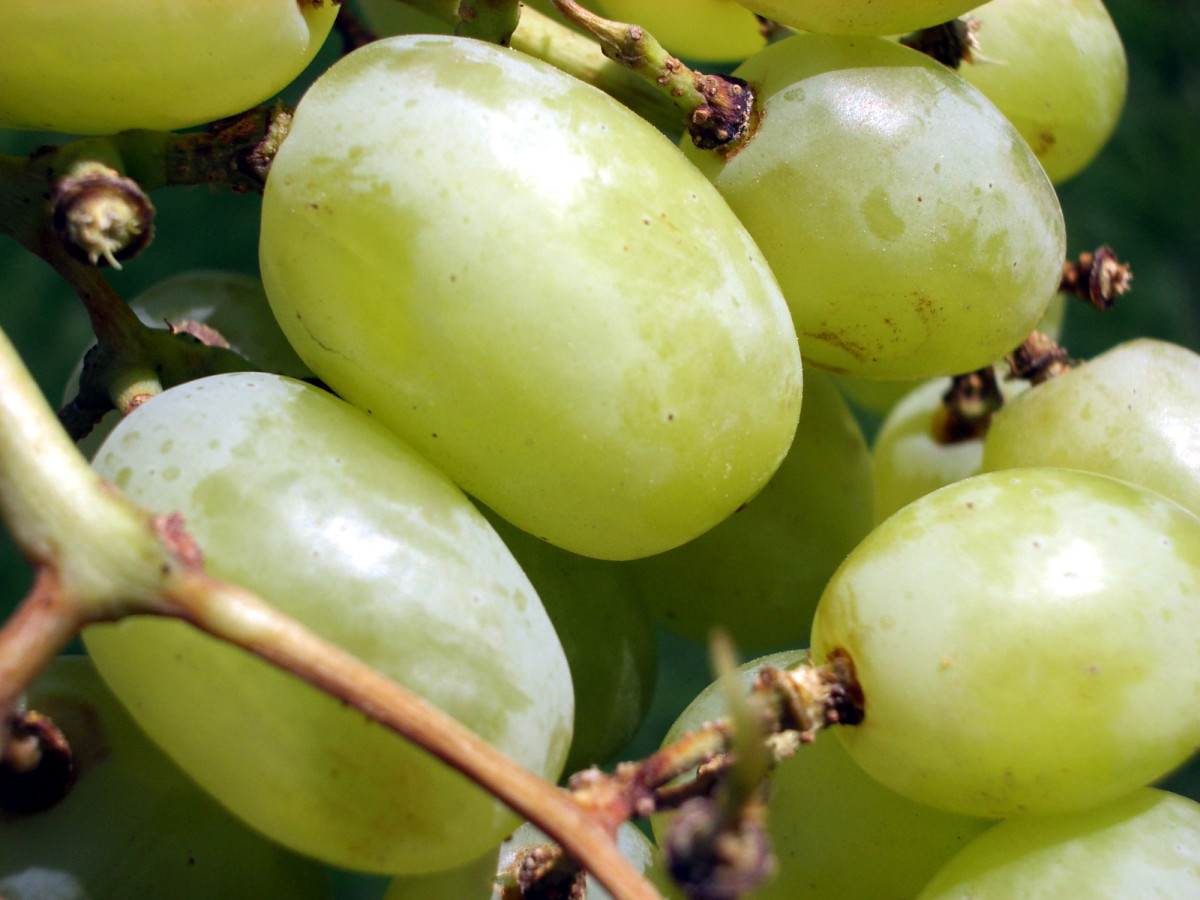Quinoa - what is this whole grain?
Quinoa is the seed that is a whole grain full of nutrients and complete protein.
Quinoa can be cooked just like rice. However, make sure you wash the quinoa thoroughly before cooking in order to remove any saponin residue. And it tastes great (especially with a little butter).
You probably have heard that it is better to eat whole grain rather than non-whole grains. A grain in nature consists of the bran, germ, and endosperm. Whole grains retains all three components of this original kernel. And hence contains its natural nutrients and fiber.
White rice is not a whole grain because it has been refined such that its outer kernel has been completely along with all its nutrients and fiber.
Although technically quinoa is a seed, the Whole Grains Council still lists quinoa as a whole grain.[4] Regardless of symantics, quinoa has all the health benefit equivalent of whole grains and perhaps even more so.
Quinoa is Nutrient Rich
Some of the nutrients in quinoa are manganese, tryptophan, magnesium, folate, phosphorus, potassium, zinc, iron, and other. It provides a whole bunch of B vitamins: B1 (thiamin), B2 (riboflavin), B3 (niacin), B6, and B9 (folate or folic acid).
Quinoa provides over 50% of DV of manganese. Manganese is a mineral cofactor for the superoxide dismutase enzyme which is an antioxidant that helps to protect the mitochondria from oxidative damage.
Whole grains contain powerful antioxidants known as phenolics. In fruits and vegetables, phenolics come in "free" form. Whereas in grain, they come in "bound" forms which must be released by intestinal bacteria during digestion before they can be absorbed. The antioxidant ability of whole grains are often underestimated due to measuring only the free from of phenolics without taking into account the bound form present.
Whole grains and fiber provides some protection against some cancers.
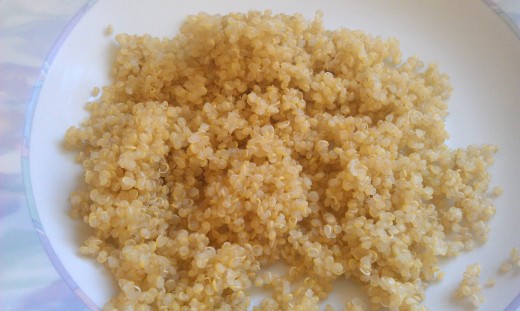
Quinoa is a complete protein
Protein consists of amino acids. A protein is not complete unless the protein contains all 9 of the following "essential" amino acids which the body needs to obtain from food: tryptophan, threonine, isoleucine, leucine, lysine, methionine, phenylalanie, valine, and histidine.
Futhermore there are "conditionally essential" amino acids such as arginine, cysteine, glycine, glutamine, histidine, proline, serine, and tyrosine which the body can synthesis only in very limited amounts and hence should be obtained from foods.
Most animal proteins are "complete". And most plant proteins are "non-complete".
However, quinoa is unique in that it is is among the few in the plant world in that contains complete protein. Unlike many grains that is missing lysine, quinoa has its full complement of amino acids that includes all the essential and conditionally essential amino acids listed.
World's Healthiest Foods site says that ...
"Not only is quinoa high in protein, but the protein it supplies is complete protein, meaning that it includes all nine essential amino acids. Not only is quinoa's amino acid profile well balanced, making it a good choice for vegans concerned about adequate protein intake, but quinoa is especially well-endowed with the amino acid lysine, which is essential for tissue growth and repair."
Wash Quinoa Thoroughly to Remove Saponins
Quinoa as found in nature contains a bitter soapy outer residue known as saponin. Saponin is another anti-nutrient often found in grains that increases gut permeability. Grains developed these defenses so that birds and small creatures does eat them.
Saponins increases intestinal permeability -- but to what extent we do not know. For some people, this may lead to leaky gut syndrome which increases the suspectibility of developing an autoimmune disease. Hence, a person with any kind of autoimmune disease or family history of such may want to limit consuption of grains including quinoa.
For healthy individuals, quinoa should be fine when consumed in moderation (as a limited side dish, not as a main dish) provided that you rinse quinoa thoroughly until the water runs clear before cooking. Because of the small floating seeds of quinoa, you need a fine mesh sieve in order to do this well.
Although, most commercial quinoa found in stores already has is saponins removed, you still need to wash them. As you wash quinoa in water, you might notice bubbles forming in the water. This is the soapy saponin residue. Hence the name saponin.
Saponins developed in some plants and grains in order to provide the bitter taste so that livestocks do not eat them. Although a Cornell University article talks mainly about the effect of saponins on livestock, it did mentioned that ...
"Humans generally do not suffer severe poisoning from saponins. Our cholesterin inactivates them so that only our mucus membranes are affected. ... Alfalfa saponins may have potential in human health issues because they reduce serum cholesterol by preventing its reabsorption after it has been excreted in the bile."
So it is really debatable as to what effect saponins have on human health.
Quinoa, phytate, and oxalate
Like many other grains, quinoa contains phytate (or phytic acid). Phytate is yet another anti-nutrient. Since phytate chelates to minerals, it reduces the bioavailability of all the minerals that is found in the food possibly including such as phosphorus, calcium, magnesium, iron and zinc. Phytate is one of the main causes of anemia, which is low red blood cell count.
Some people can produce phytase, an enyzme which neutralizes phytate. To some extent, soaking and/or fermenting the grain can neutralize phytate.[5]
Quinoa also contain oxalate. Although the amount varies widely. So people on an oxalate-restricted diet may what to avoid.
Paleo Says No Grains
Because of the anti-nutrients in grains, many people on the Paleolithic diet say to not eat grains at all. They say that anything from grains can be obtained better in other food sources (mainly vegetables for the fiber and other nutrients).
Dr. Loren Cordain writes in his book The Paleo Answer that quinoa...
"contains numerous antinutrients, including saponins, protease inhibitors, phytate, and tannins. A potential health-threatening component in quinoa is its high sponin content" [page 128]
Grains are carbohydrates which turns into glucose in the bloodstream. Those with metabolic syndrome, insulin resistance, or diabetes should avoid certain carbohydrates (including grains, but not vegetables) in order to reduce glucose load.
Does Quinoa Contain Gluten?
The traditional answer is no. Although quinoa does not have the traditional gluten known as gliadin, it is still a seed and contain seed storage proteins known as prolamin, which is a gluten like protein that is particularly difficult to digest. For some individuals, they can still react to quinoa as if it contained gluten.
A study found that ...
"Most quinoa cultivars do not possess quantifiable amounts of celiac-toxic epitopes. However, 2 cultivars had celiac-toxic epitopes that could activate the adaptive and innate immune responses in some patients with celiac disease."
Some new school of thought believes that all grains can have an inflammatory reaction by certain individuals, because all grains contain prolamin.
Dr. Peter Osborne has more information on his article about quinoa as it related to gluten-sensitive individuals where he writes ...
"quinoa is not necessarily safe for ingestion in those with gluten sensitivity."
Also watch his video explanation of gluten sensitivity and grain definitions on the right.
Gluten Cross-Contamination
Furthermore, the processing of quinoa may introduce gluten via cross-contamination from other gluten grains in the same facility.
It may have been processed in machinery that share use with other grains that may contain gluten. So look for packaging that labels it as "gluten free" to avoid any cross-contamination of gluten.
Certain other grains such as wheat, barley, rye, spelt, kamut, faro, and others contain an anti-nutrient called gluten. People with celiac disease needs to avoid any gluten completely. And many people have gluten sensitivity that causes gut and brain symptoms.
Nora Gedgaudas writes ...
"even though other grains, such as quinoa, corn, millet, rice, and buckwheat (or soy), do not technically contain gluten, gluten contamination in many of these foods and cross-reactivity are extremely common." [page 47 of Primal Body, Primal Mind]
Conclusion
Quinoa is a whole grain that is gluten-free (according to the traditional definition) and contains complete protein with lots of other nutrients. For healthy individuals who are not gluten-sensitive, it is okay to consume quinoa in moderation such as a side dish occasionally. Note that it should not be the largest portion of a dish. Recall that vegetables and fruits should make up 50% or more of your plate. And I would not consume it on a daily basis. Remember to wash quinoa thoroughly before cooking.
Like many grains, quinoa does have anti-nutrients including saponins and phytate. Those with gut issues and autoimmune diseases may want to avoid grains (including quinoa) due to these antinutrients. Diabetics and people with insulin resistance or metabolic syndrome may want to avoid grains because the carbohydrate can increase blood glucose loads. Although the effect may not be as much in grains as in some of the other processed bread, pizza, sugar, etc.
References:
- [1] WholeHealthMD
Physician-directed actionable health information, which combines conventional medicine and alternative therapies to improve Whole Health. - [2] Quinoa - Wikipedia
- [3] Gliadin, zonulin and gut permeability:... [Scand J Gastroenterol. 2006] - PubMed - NCBI
- [4] Definition of Whole Grains | The Whole Grains Council
The Whole Grains Council is a nonprofit consumer advocacy group that helps consumers find whole grain foods and understand their health benefits; helps manufacturers create delicious whole grain products; and helps the media write accurate, compellin - [5] Reducing Phytic Acid in Grains and Legumes

